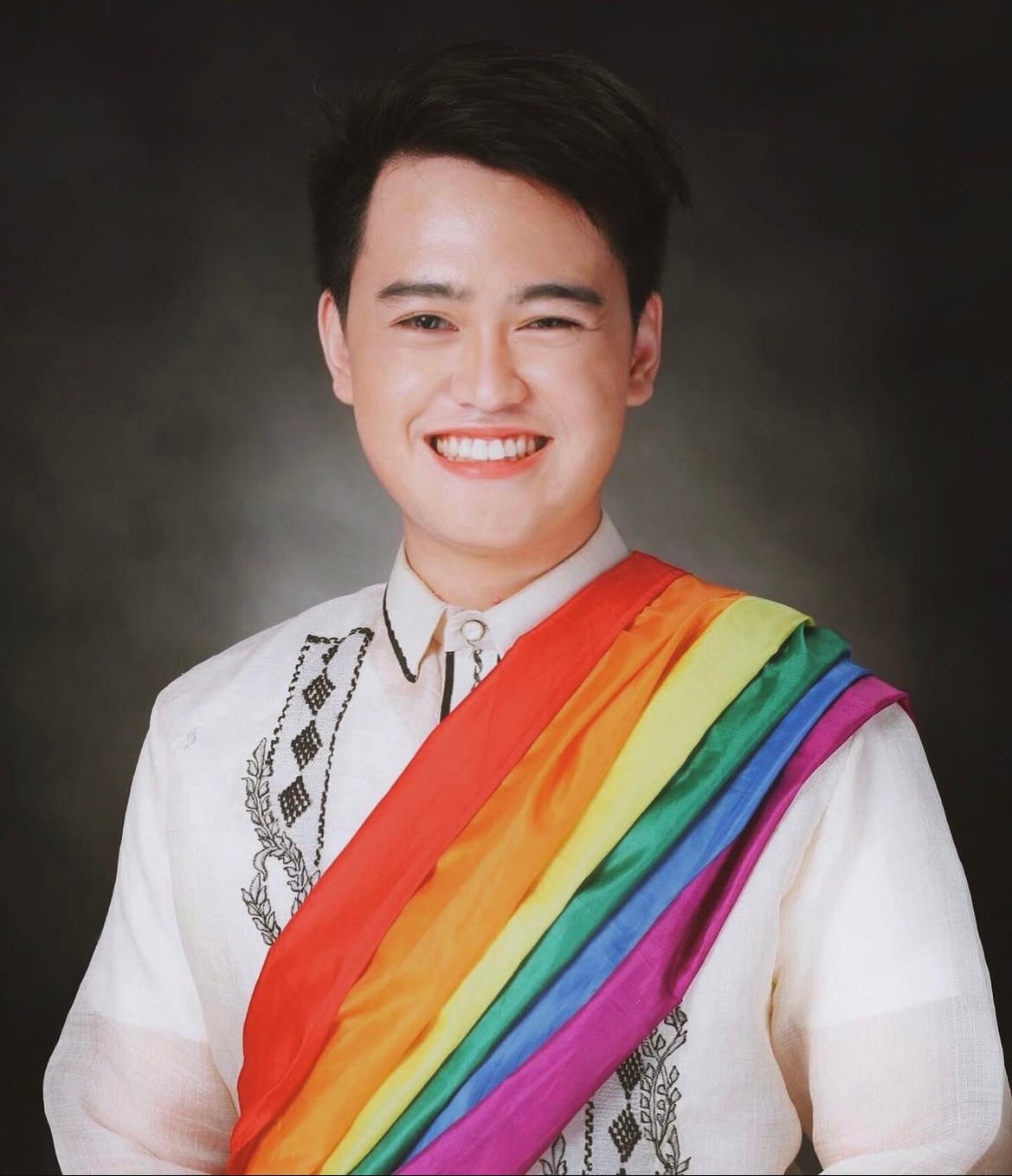
One of the reasons I believe God redirected me to UST was that it became more than just a university. I didn’t know it then, but it would become the place where I would find my voice, and the convictions that would define me.
Looking back, not transferring to La Salle became a pivotal moment. I chose to stay in UST and decided to make the most out of where I was planted.
Learning to Lead and Learning to Speak
So I got involved by joining different student organizations. Eventually, I became part of the Student Council in our local college and the entire university. That’s where I began to discover a deep passion for leadership and public service. I gravitated toward the communications side of things and spent a lot of time in the Public Relations Committee. I loved anything that involved messaging, branding, events, and storytelling. It felt natural, like I was tapping into something I was born to do.
But being in the student council also opened my eyes to something bigger than posters and campaigns. I started becoming more aware of the social and political issues affecting students, and Filipinos, at large. Advocacy work and the pursuit of social transformation started to stir something in me. And as I got more involved, I realized that these weren’t just political stances or trendy hashtags. They were deeply personal to me.
When the Mental Health Advocacy Became Personal
From 2016 to 2017, there was a noticeable shift in the national conversation around mental health. And UST wasn’t exempt. Within the university, there were alarming reports of suicide attempts and mental health struggles among students. The silence was breaking, but slowly and painfully.
Around this time, I joined the Youth for Mental Health Coalition, led by its former chairperson RJ Naguit. It was one of the most formative experiences of my college life. For the first time, I saw how young people could use their collective voice to influence policy, push for laws, and fight for visibility. We were part of the student movement that helped push for what would eventually become the Mental Health Law.
And while I was raising awareness for mental health, I was also slowly beginning to understand my own.
My struggles with mental health started to make more sense. Suddenly, I had language for the pain I used to carry in silence back in high school. I learned that my mental health issues weren’t random. They were deeply tied to my identity, especially my sexuality.
Growing up queer in a conservative Catholic culture taught me to be ashamed of myself and that I didn’t deserve love. That kind of internal conflict isn’t just emotional. It takes a toll on your body, your spirit, and your sense of worth. Speaking up about these issues wasn’t just activism. It was my way of reclaiming power. It was my way of healing.
Breaking Silence in a Conservative School
By 2017, I was appointed to be the co-director for the Campaigns and Advocacies Committee of the Central Student Council. Traditionally, UST wasn’t known for being outspoken on social issues. Schools like UP, Ateneo, and La Salle had louder reputations for activism. But something was starting to change. More students were finding their voice. And I had the privilege of helping shape that space.
One of the most memorable projects I led was a university-wide mental health forum. Back then, this was uncharted territory. Mental health wasn’t a mainstream topic yet, especially not in schools, let alone Catholic universities. We weren’t just hosting an event. We were creating space for conversations that hadn’t been allowed before.
Building Safe Spaces: UST Hiraya
And then came UST Hiraya.
UST Hiraya, which means “fruit of one’s hopes or dreams,” was formed as an intersectional feminist organization. At the time, forming an official LGBTQ+ student org in UST wasn’t possible. So UST Hiraya became the closest thing to a safe space we could have, a home for students who didn’t feel seen in traditional spaces.
Through UST Hiraya, I began to understand what intersectionality really meant. I saw how gender, identity, mental health, faith, and socioeconomic class weren’t separate lanes. They were deeply intertwined. And I didn’t just learn this in theory. I lived it.
Coming Out and Reconciling My Identity and Faith
Coming out to my family during this season changed everything. Now that I was out in the open, I didn’t just speak louder, I spoke truer.
When I ran for student council in our local college, my entire platform was built on my identity and advocacy as a queer person. I remember reciting my campaign speech and I actually cried after because it felt so personal and empowering. (I don’t have a video of my campaign speech, but I shared the draft in the embedded video) Every project I proposed centered on the need to create safe spaces and promote inclusion within the college.
But, I lost. Despite that it taught me more than any title ever could. I wasn’t just running for a position, I was creating space: a space for queer students, a space for young advocates, and a space for those who didn’t yet have the words, but carried the same fire I did. This experience didn’t discourage me, but it fueled me to champion inclusion even more boldly, even more intentionally, wherever I could.
Somewhere in that process, I also began reclaiming my faith. I started telling people, yes, I’m queer, and yes, I’m Christian/Catholic. I truly believed that God had made me this way, and that He was using my voice to help others like me. Maybe this was why I went through all that pain, so I could turn it into purpose. I saw my story as part of a bigger calling: to bring light, healing, and representation to those still in the dark. My faith wasn’t in conflict with who I was because it felt like confirmation of it. That belief gave me strength. It helped me endure the shame I had carried for so long.
A Voice Beyond the University
Soon after, I was appointed as an officer of UST Hiraya. I began receiving invitations to speak about mental health, gender equality, and youth leadership, both inside and outside UST. I partnered with youth groups like Akbayan Youth and joined mobilizations and protests from advocating for the passage of the Safe Spaces Act, the SOGIE Equality Bill, to speaking out against the burial of Marcos in the Libingan ng mga Bayani.
I believed I was meant to use my voice, my story, and my skills in communication to shape culture, speak truth, and create space for healing. Whether it was through campaigns, speeches, mobilizations, or therapy sessions, I felt like I was walking in alignment with something bigger than myself.
Finding Middle Ground with Faith
Through my exposure to advocacy work, I also found myself navigating conversations with Catholic administrators and professors who weren’t always comfortable with topics like gender and sexuality. Before, I would’ve avoided religion altogether or seen it as the enemy. But being in UST taught me something else. I realized it was possible to find middle ground.
We couldn’t talk about Pride openly. We couldn’t form an LGBTQ+ org. But we could organize forums on SOGIESC. We could hold events about safe spaces. I even remember one time we invited, Ms. Mela Habijan, a transgender woman and LGBTQ+ activist, to speak at one of our events and in a Catholic university, that was already a big deal.
These weren’t policy shifts, but they were significant moments. They were small breakthroughs. And they taught me how to advocate within tension not by watering things down, but by learning how to speak in a language that people could receive.
Ikigai and Lavendaire
Around this time, I also discovered content creators like Aileen Xu of Lavendaire, whose reflections on healing, creativity, and overcoming perfectionism felt like warm reminders that I wasn’t alone in the messiness of growth.
Along the way, she introduced me to wellness practices and self-discovery tools that helped me better understand myself. One that deeply resonated with me was Ikigai, the Japanese concept that invites you to reflect on what you love, what you're good at, what the world needs, and what you can be paid for. It affirmed what I already sensed: that my advocacy wasn’t just a passion, but a calling.
That same time, I was also chosen as Candy Magazine’s Ambassador for Student Leadership, a recognition that reminded me I wasn’t just being seen for what I did, but for who I was becoming.
God Was Already Moving
College made me feel like I was finally becoming whole.
And in many ways, I believe I was.
Even though I didn’t realize it at the time, God was already moving.
He was using my activism, my leadership, my heartbreaks, and my longing for justice to shape the voice I would one day use… for Him.






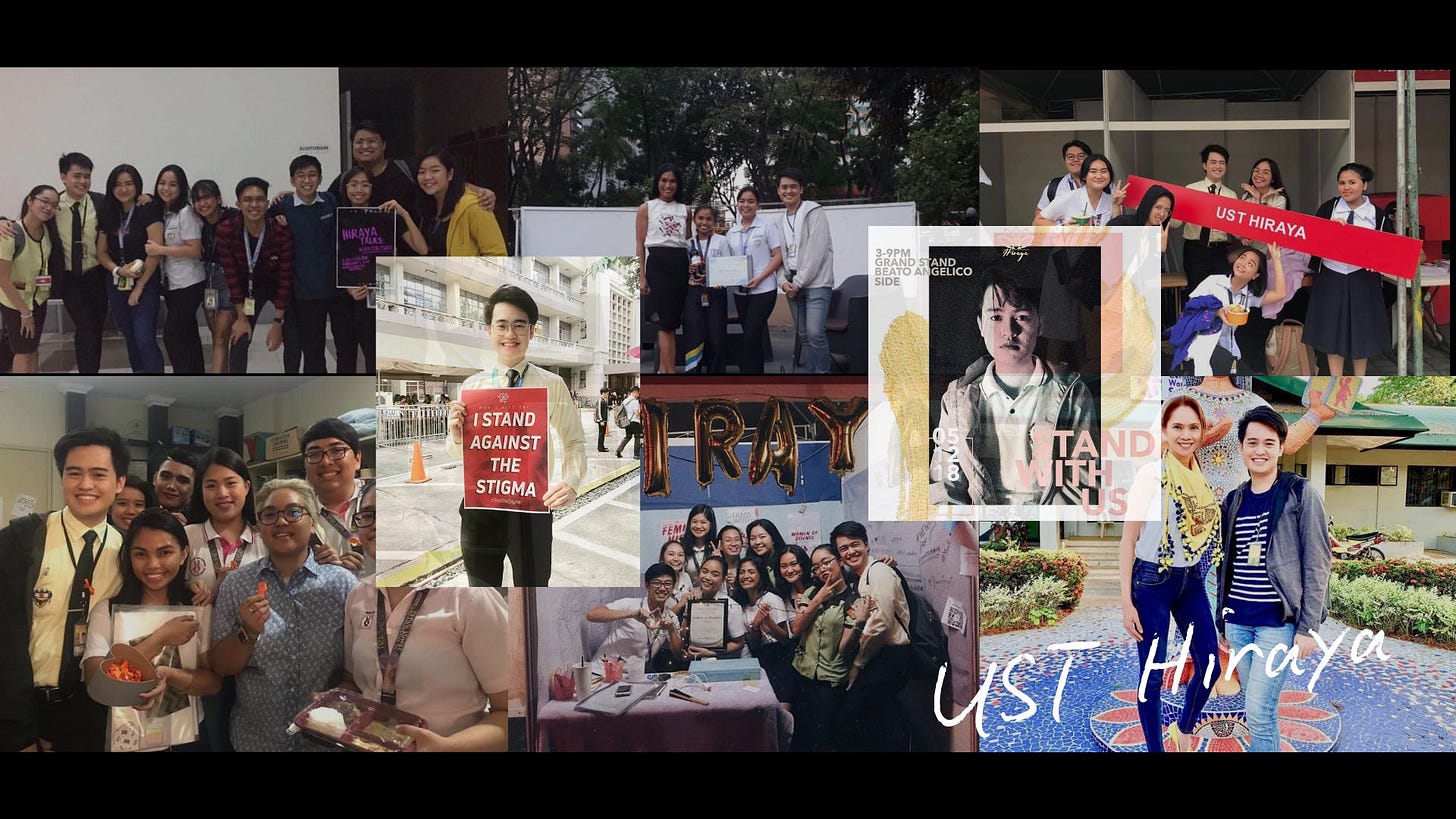

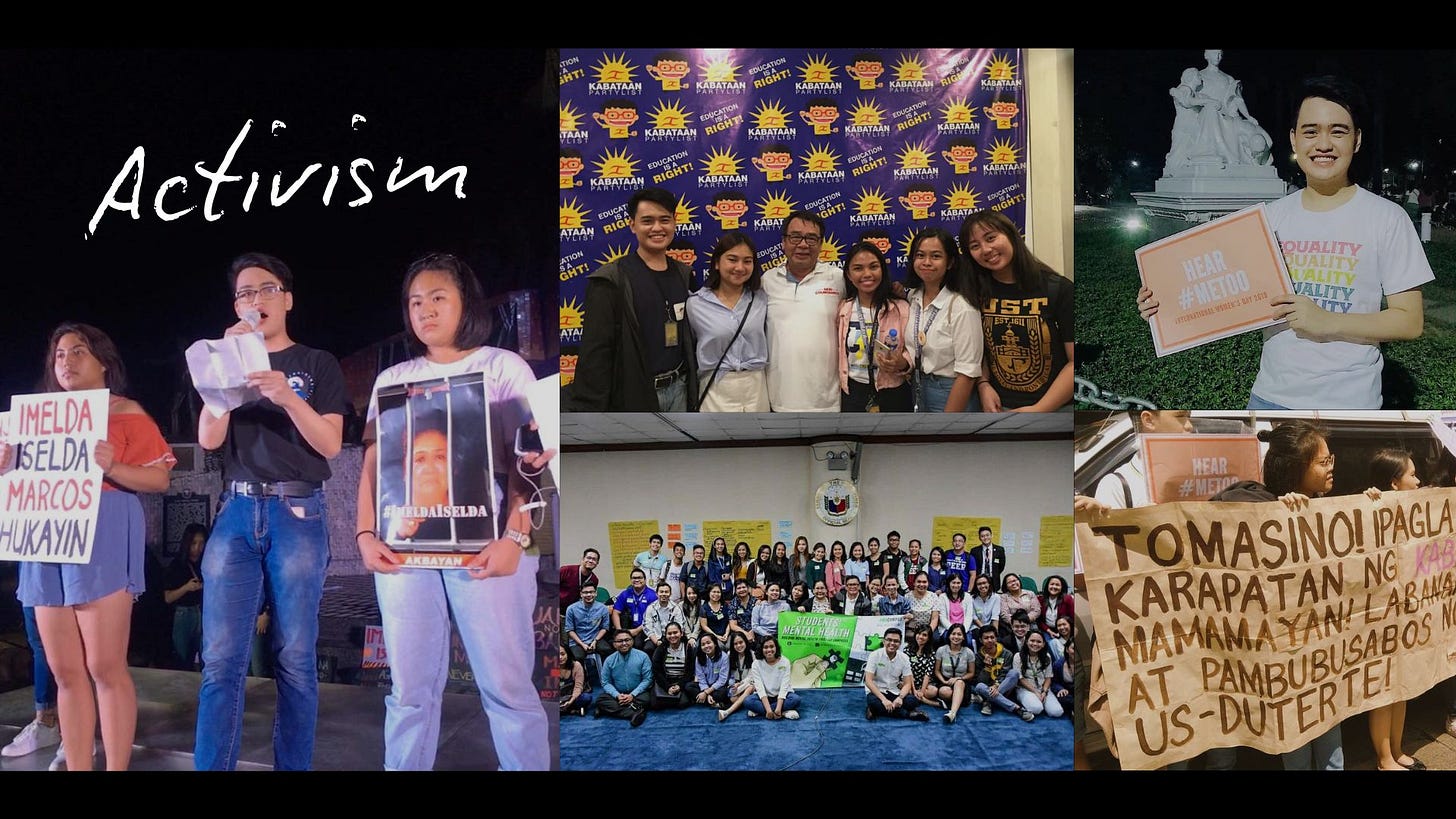

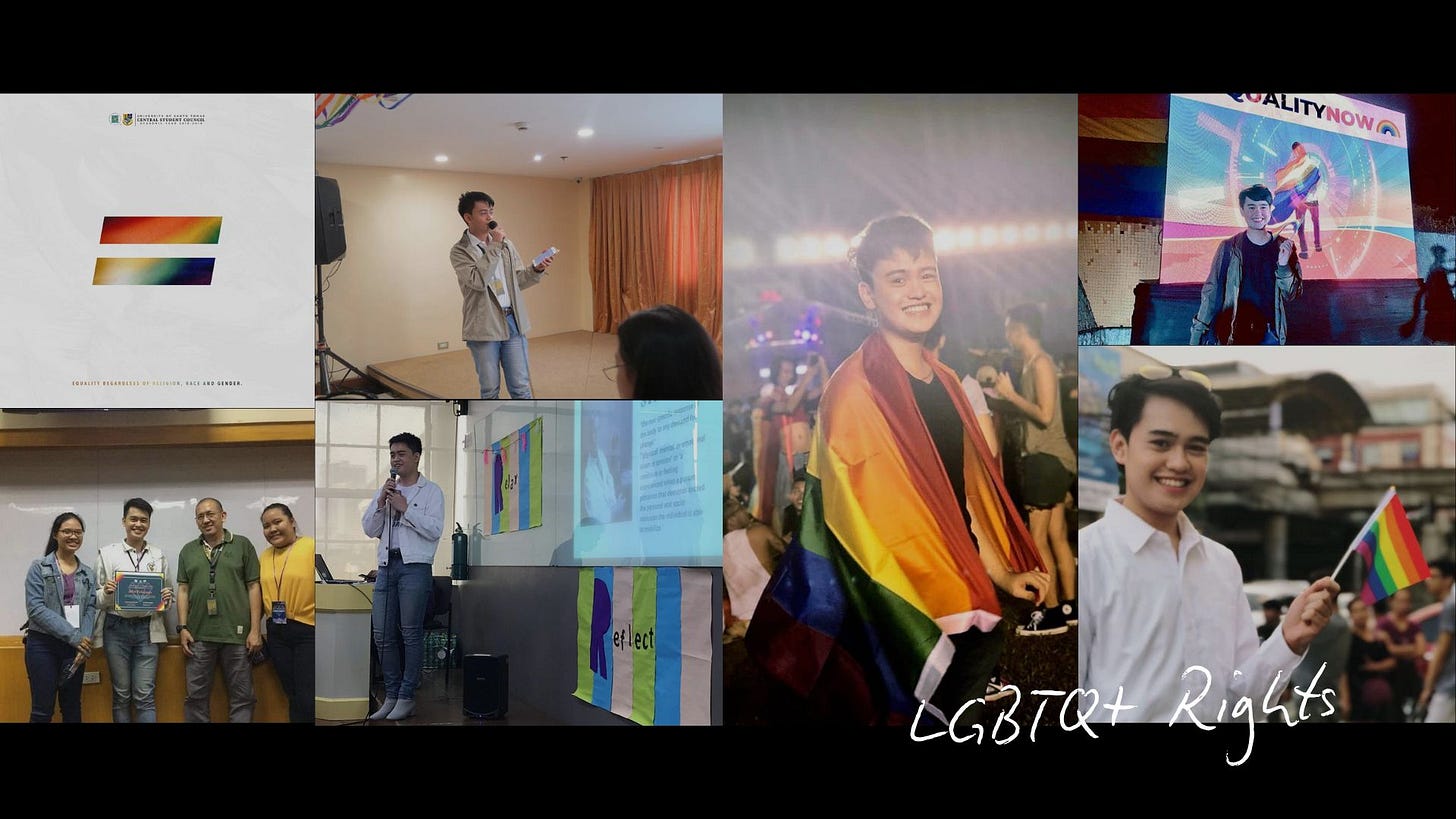








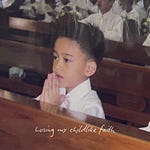
Share this post